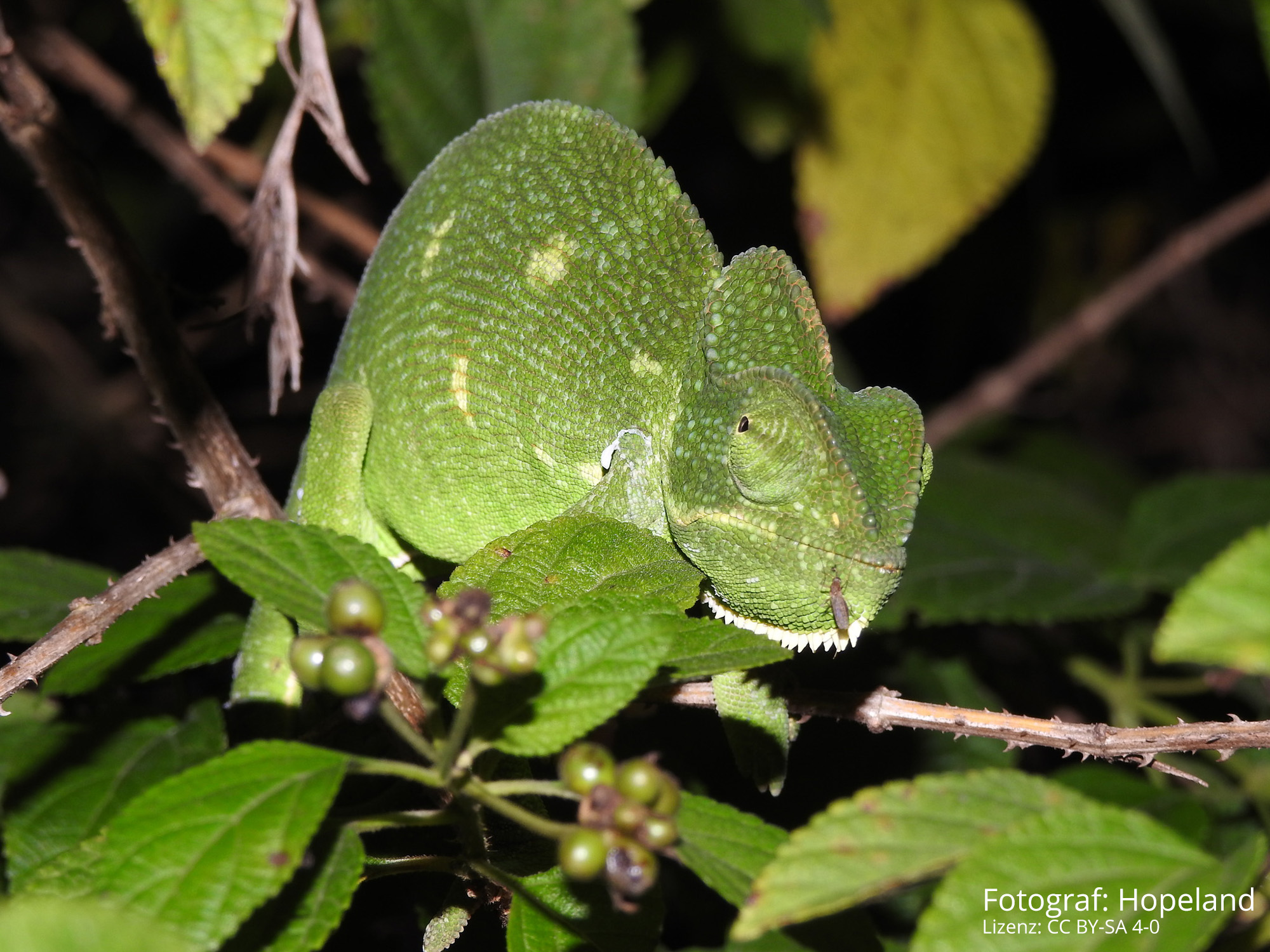A biologist from India has published findings of the Indian Chameleon (Chamaeleo zeylanicus) that narrow down the distribution of the species more precisely. The Aravalli Mountains are located about 150 km west of the Indian capital New Delhi in northwest India. It runs for 670 km in a south-westerly direction, passing through three different states: Haryana, Rajasthan, and Gujarat. Until now, the Indian chameleon was thought to occur in the south and centre of Rajasthan, but was not common in the north, east, or west. So far, no findings had been documented from Haryana at all.
The biologist describes six observations of the Indian Chameleon between 2015 and 2022, during which Chamaeleo zeylanicus was seen four times in the Sariska Tiger Reserve and once each at Manesar and Damdama lakes, at altitudes between 223 and 476 m asl. The former is in northern Rajasthan, the two lakes not far from it in southern Haryana. The forest of the site in the Sariska Tiger Reserve is dominated by Indian lungwort (Adhatoda vasica), prairie mugwort (Parthenium integrifolium) and mesquite tree (Prosopis juliflora). The chameleons found in Haryana were found on roadsides with carira (Capparis decidua) and mesquite trees.
New distributional records of Asian Chameleons (Chamaeleo zeylanicus Laurenti 1768), from the Northern Aravali Hill range, India
Debaprasad Sengupta
Reptiles & Amphibians 30 (1), 2023: pp. 1-2
DOI: 10.17161/randa.v30i1.18614


